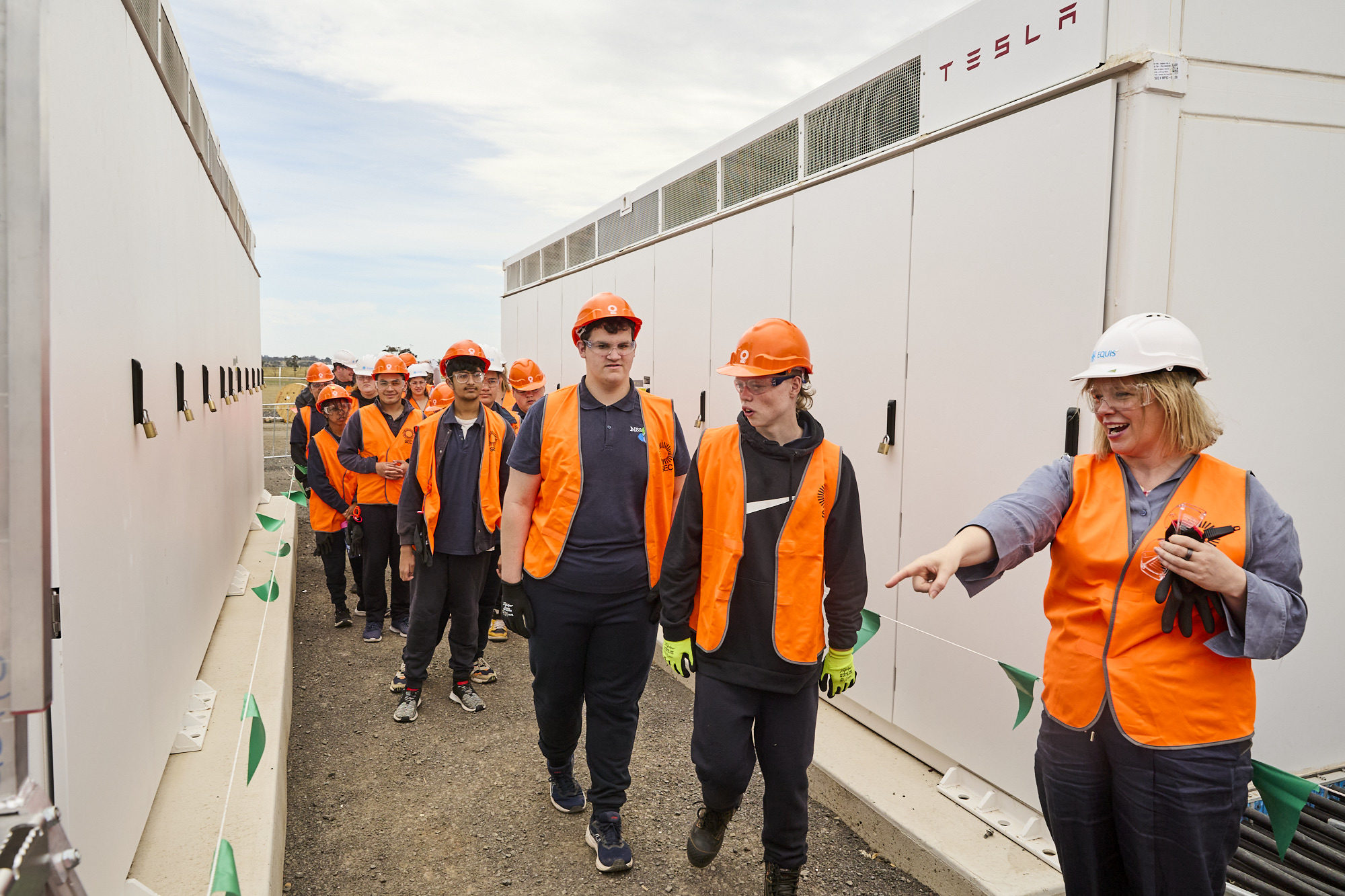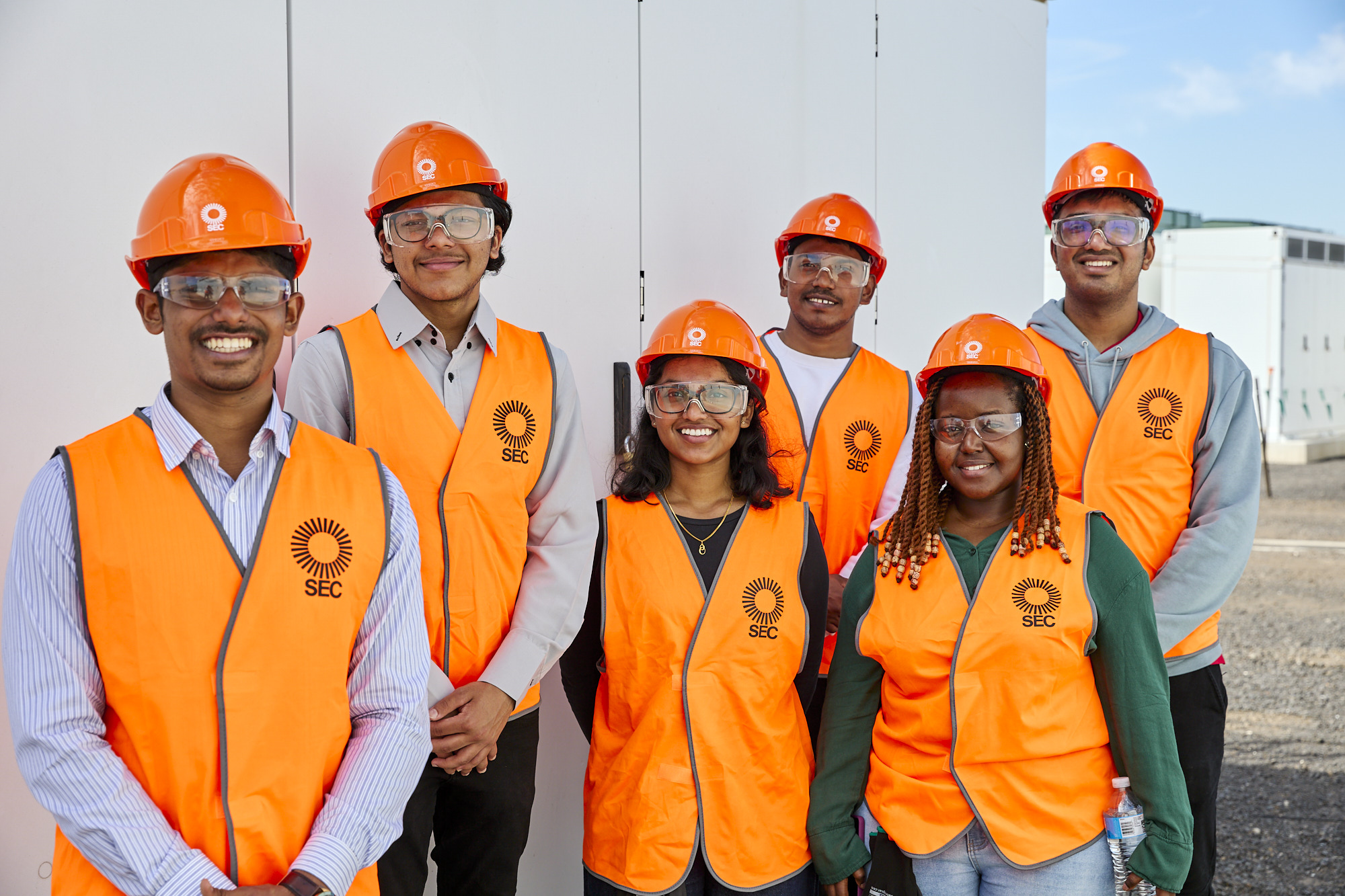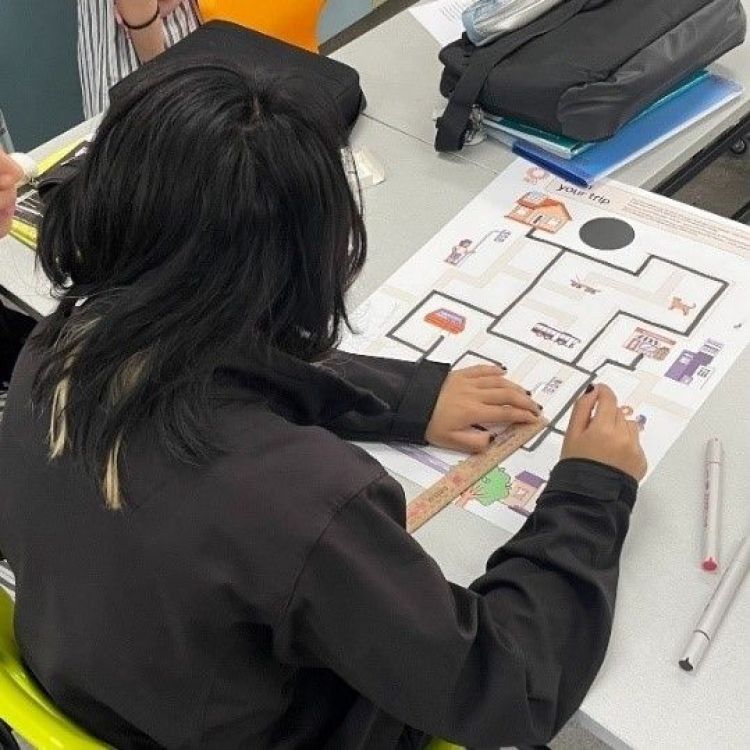As we transition to renewable energy it’s important that we can store power when the sun isn’t shining, and the wind isn’t blowing. Come and see the Melbourne Renewable Energy Hub 444 battery packs which will ultimately strengthen Victoria’s electricity network by storing surplus rooftop solar and energy from the grid.
During the site visit students will learn about:
- forms of renewable energy and its role in the energy transition
- how big batteries soak up extra rooftop solar and energy from the grid
- safety on site
- construction on site
- the range of careers needed for this project and hear from real-life people about their own career journeys (this can be tailored for your group, from construction jobs to engineering).


Workshop themes

Renewable Energy

Safety

Careers profiles

Sustainability

Storage
Program structure:
This session is delivered on site in Plumpton, in partnership with renewable energy investor Equis Australia, and runs for two hours. Due to safety, all sessions are run on Rostered Days Off, and the majority of these are on Mondays. On arrival, students are given a safety briefing and overview of the energy transition before doing a tour of the site. This is followed by a Careers Q&A from people working on the project. Roles showcased can vary from construction to other disciplines such as engineering and will be arranged based on the requirements of your group.
The presentation will be delivered by an experienced educator and links to the following Victorian Curriculum.
Victorian Curriculum 2.0 Years 9-10
Design and Technologies
The impacts of innovation, enterprise and emerging technologies on designed solutions for ethical considerations including sustainable living.
VC2TDE10S02
Physical Sciences
Electricity can be generated as alternating current (AC) using magnets (via turbines turned by wind, water, tides or steam that is generated by the combustion of oil, gas or coal or by nuclear energy) or as direct current (DC) using photovoltaic cells or batteries.
VC2S10U16
The Use and Influence of Science
the use of scientific knowledge to address socio-scientific issues and shape a more sustainable future for humans and the environment may have diverse projected outcomes that affect the extent to which scientific knowledge and practices are adopted more broadly by society
VC2S10H03
Sustainability - Futures Thinking
Sustainable futures thinking is based on informed views that consider possible and desirable futures. It leads to individual, community, organisational and political action that reduces risk.
VC2CCPSFT1
The workshop also links with the Victorian Careers Curriculum Framework Years 7-10 in the following two stages:
- Self-development: young people understand themselves, build their experiences and achievements and develop their capabilities.
- Career exploration: young people locate, investigate and consider opportunities in learning and future work options.
The program can be modified with curriculum links to other year levels, including VCE Systems Engineering.
Frequently asked questions
All workshops are free of charge.
The tour can be tailored for all mobilities. Please let us know ahead of time if you have questions or concerns about access for any of your group. If required, you may arrange a visit the hub to complete a risk assessment prior to your visit.
We request that you arrive approximately five minutes before the start time for session with us, so we can orientate everyone and do a little housekeeping.
If you are running late for a booking, please call us on the number we provided in your booking confirmation.
Our sessions are designed for up to 23 students. For a two-hour booking we can cater up to 40 students. Groups will be split into two and alternate between the site tour and careers session. Please ensure that you provide adequate teacher/adult supervision for the size of your group. For larger groups, please add comments in your booking request and we will consider options for you.
Safety is important to us. Site visits are only run on rostered days off (RDOs) so there will be no construction operating. Attendees must wear enclosed shoes, long sleeve tops and long pants. Personal Protective Equipment (PPE) will be provided on site and must be worn for the tour. As construction will not be operating, steel toe-capped boots are not required.
We require teachers and supervisors accompany students at a ratio of 1:20, with a minimum of two staff in line with the Department of Education and Training supervision requirements.
Duty of care
As with all school excursions, the school is responsible for the duty of care and behaviour management of all members of the school group and for providing the required number of teachers and/or authorised supervising adults to accompany the group.
Please discuss appropriate behaviour with your students to ensure that everyone can enjoy their experience.
SEC is committed to the safety and wellbeing of all children and young people. All staff have been trained in appropriate ways to work with children and all have a valid Working With Children Check.
A full risk assessment has been performed and a certificate of occupancy is available on request. Full evacuation procedures and extreme weather policies are in place. Staff trained in first aid and fire wardens are on site at all times.
We expect groups to arrive suitably dressed for the weather, but SEC reserves the right to modify your group’s program in response to extreme conditions. In particular, high temperatures, wet or stormy weather may impact the opportunity to do the site tour. In this eventuality staff will make every effort substitute with alternative activities. Please note that your session may be shortened as a result.
Classes may leave their school bags in the meeting room where the presentations are held and do not need to be carried on site.
Classes may eat in the meeting room where the presentations are held. We request that all rubbish be put away.
There are toilets, including disabled toilets on site.



